Toronto Public Library
Over the span of 10 weeks I worked with the North York Toronto Public Library to design, curate and facilitate hands-on educational programming 3 programs a week with events and resources for all things related to augmented reality
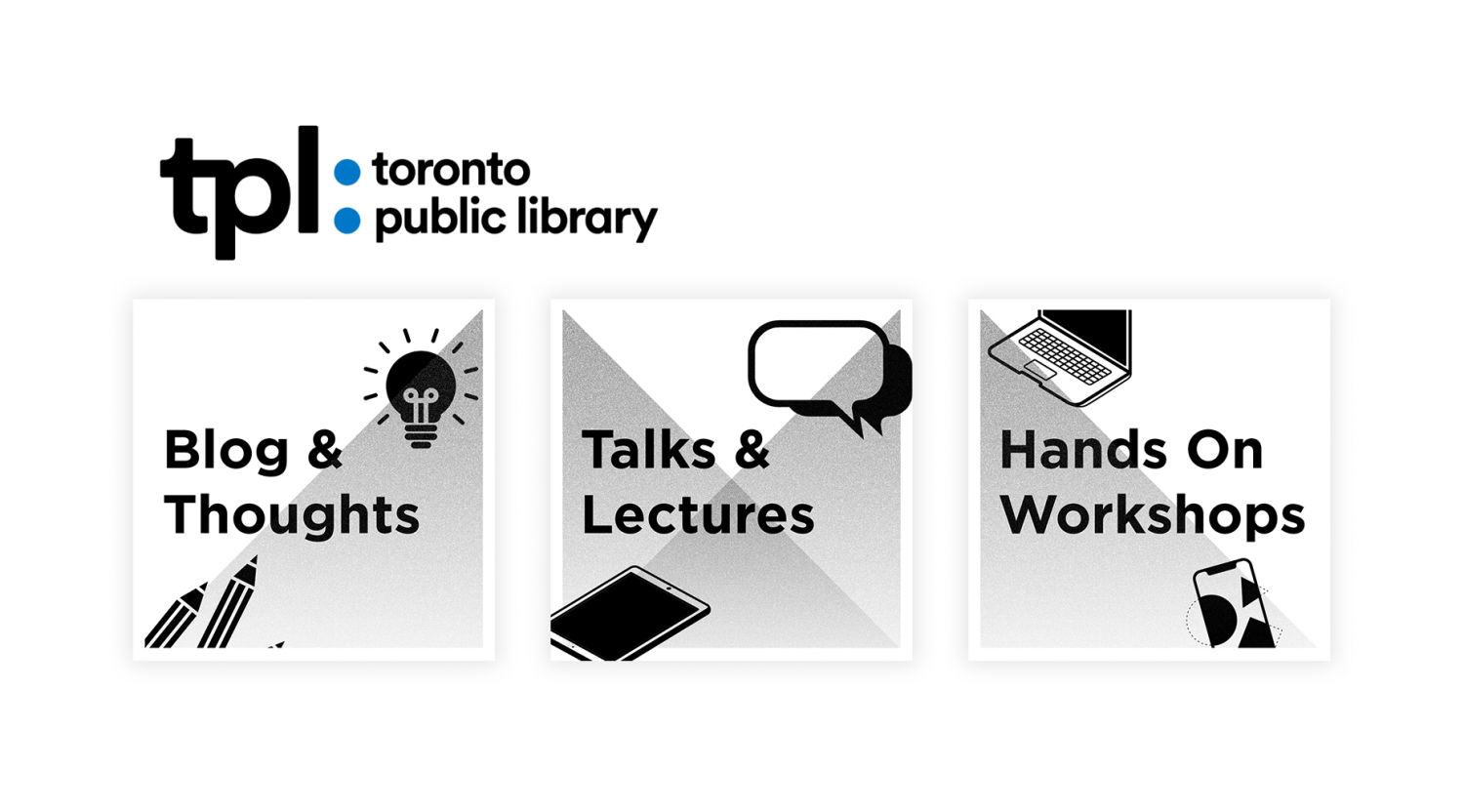
Research
Throughout the ideation & planning process I reached out to previous innovators in residence and did a general survey of 10 or so folks throughout my professional network to ask what questions and topics they wanted to learn about AR.
From these conversations and interviews I noticed a trend within the AR industry as a whole of what was needed to grow the ecosystem. A trend of 3 main groups emerged each with their own unique needs emerging from these conversations:
- People who don’t know anything about AR or are curious on how it works and can be applied to various industries
- Artists, creatives and designers who want to create for or use AR/VR in their current workflow
- Tech Savvy or developers who want to know which frameworks to start to use to get into the industry
With these user groups in mind I was able to curate 3 tiers of content with varying levels of complexity to serve their specific needs/curiosities as shown below:
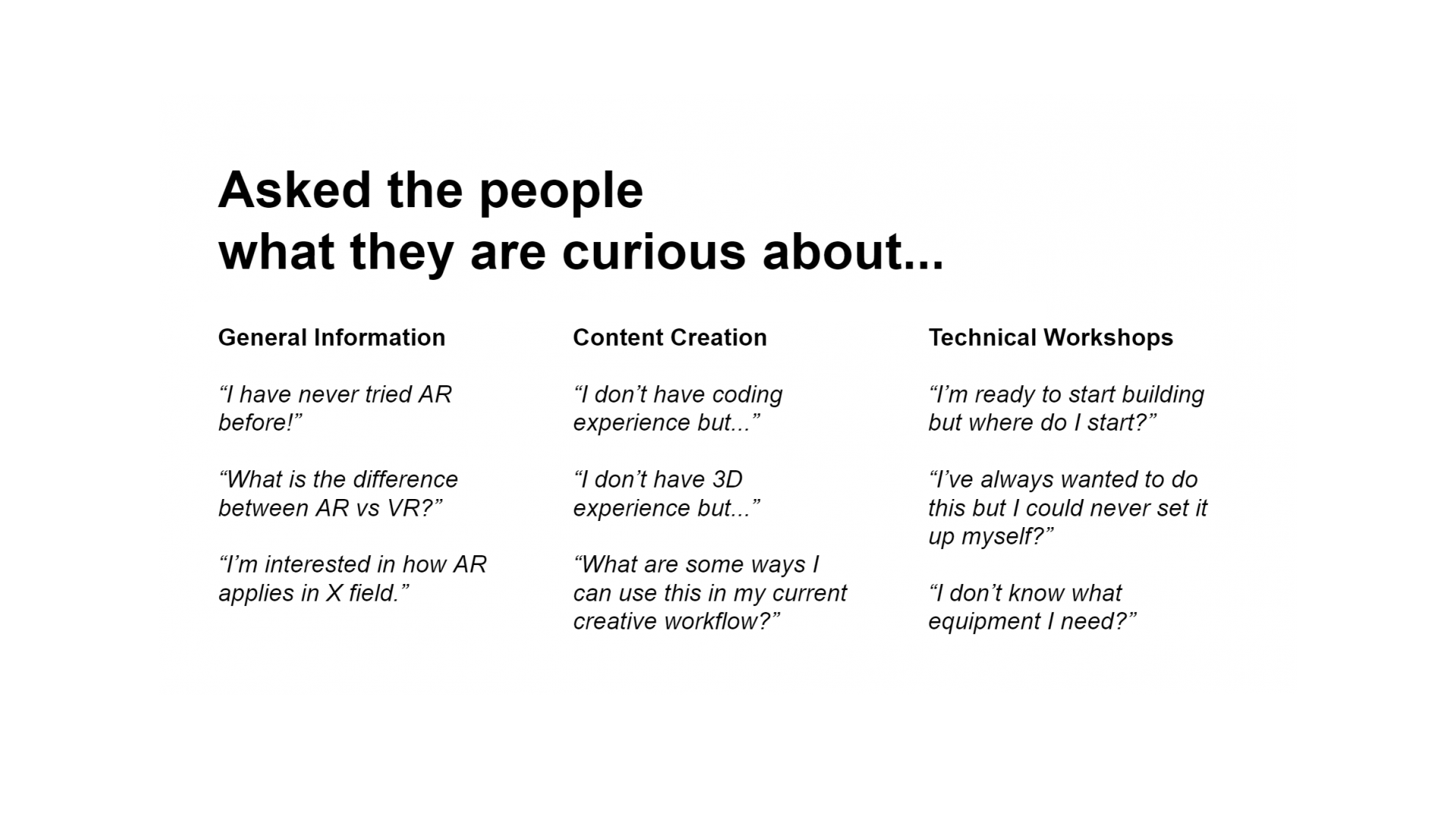
Developing an Accessible Approach
The goal was to create programming that targeted beginners who are looking to build knowledge and confidence through exposure to new technology and expertise.
What was really exciting was that Digital Innovation Hub had many resources and equipment that could support a mix of workshops, lectures, panels and one-on-one appointments.
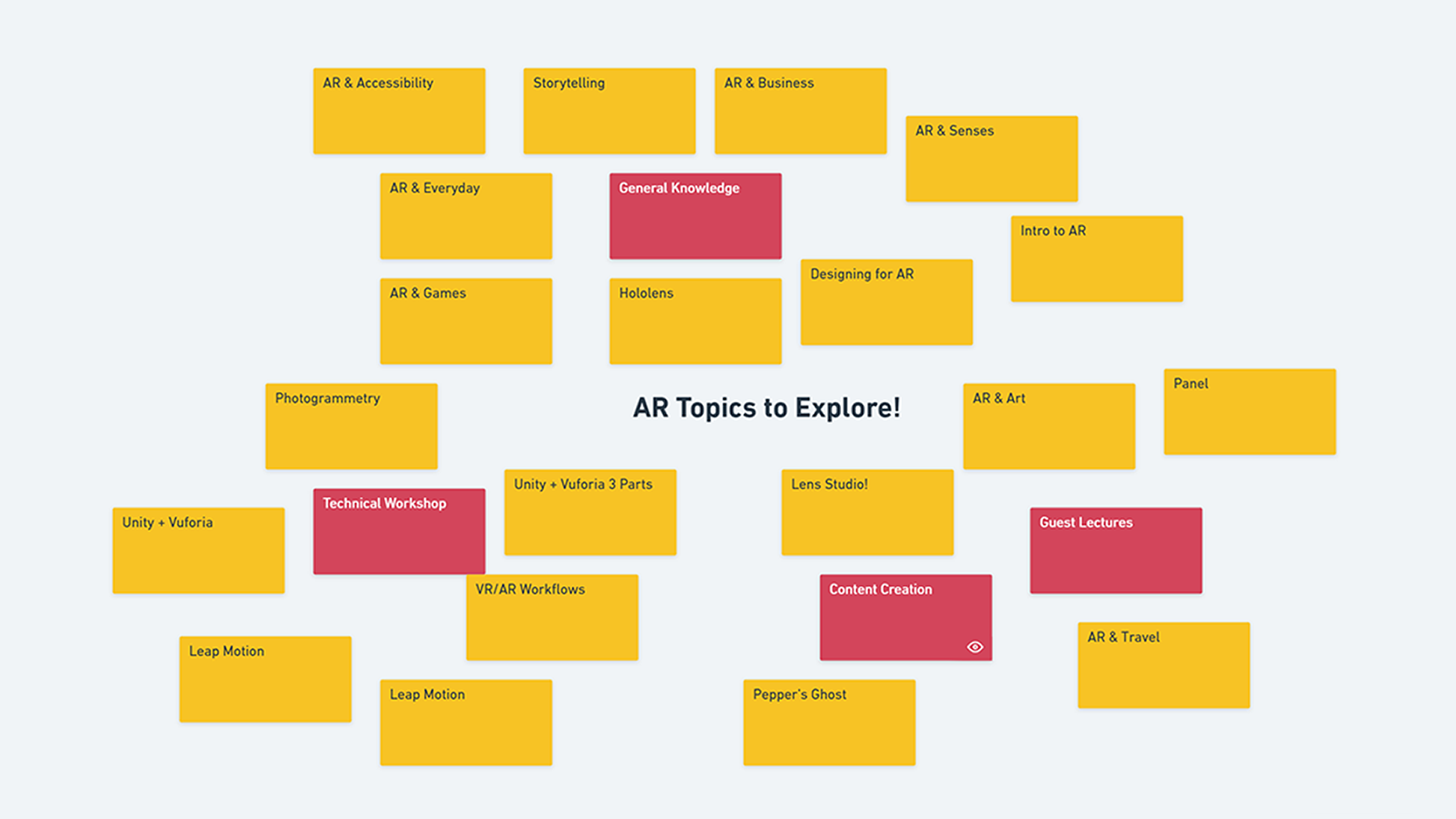
Blended Learning
It was important to cover a wide variety of topics and techniques to match the equally diverse crowds. Throughout the sessions, patrons varied from ages 6-60, and a blended programming strategy with a 60 intro /20 intermediate /20 advanced was comprised. A heavy focus on introduction topics with demos that would lead to complimentary workshops getting more hands on the 3 tiers we followed were:
Tier 1: General Introduction
For those who have never heard about augmented reality. In one session they could learn how the technology works on a high level and try out demos from specific industry to see it being used in action. This was done through demo sessions, guest speakers and panels on other areas of expertise.
Tier 2: Content Creation Techniques
For designers and artists or those who are keen on using AR or emerging techniques into their current process. We scoped out some best practices and explored emerging ways of making from a non-technical perspective.
Tier 3: Technical Workshops
Finally for those who wanted to take the next step in developing apps of their own we introduced some basic industry frameworks, standard tools and processes in a series of hands on technical workshops.
Tier 4: Guest Lectures
Diverse perspectives, connecting the public and industry experts to foster a sense of community, learning and open sharing of ideas.
[Select Slides & Topics]
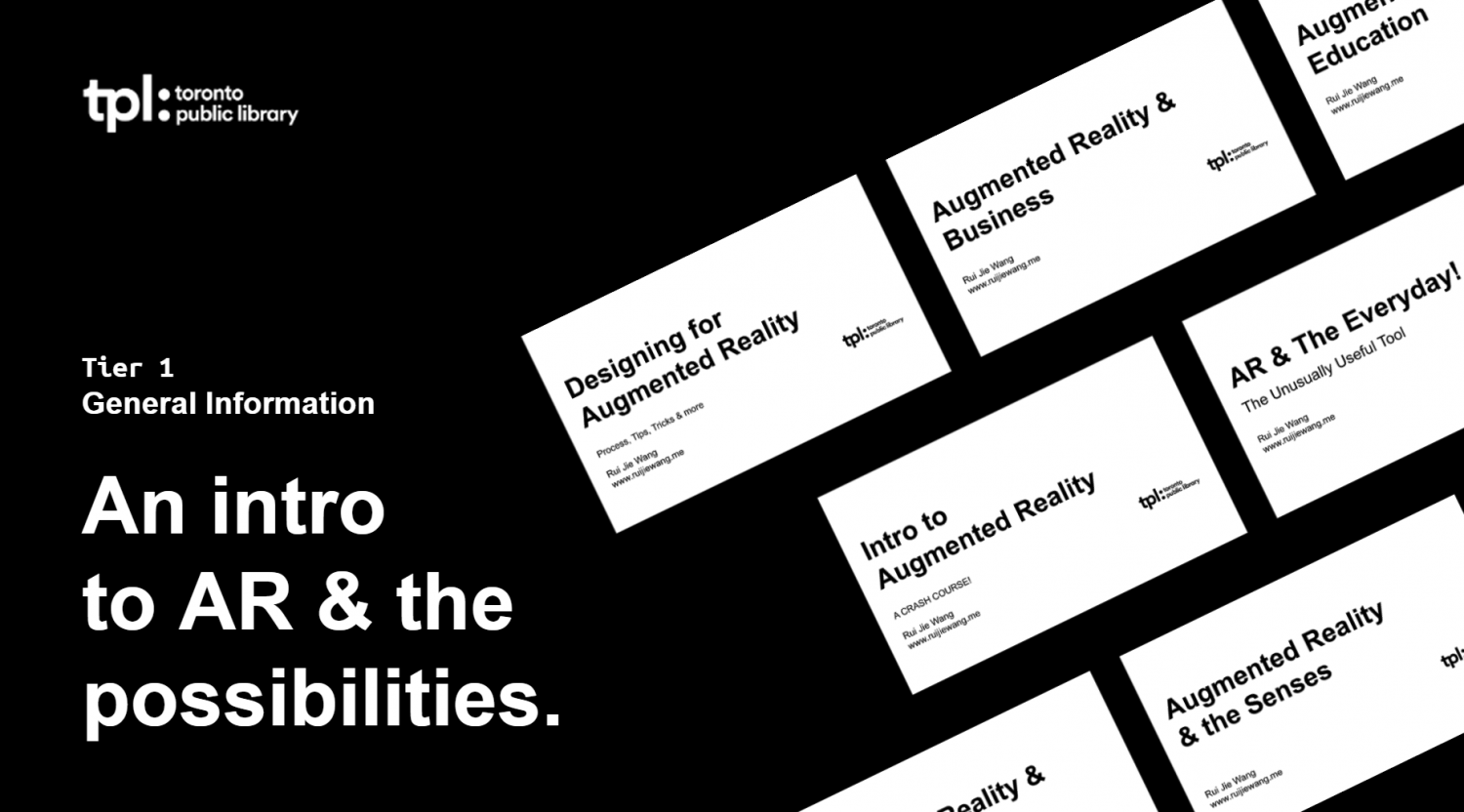
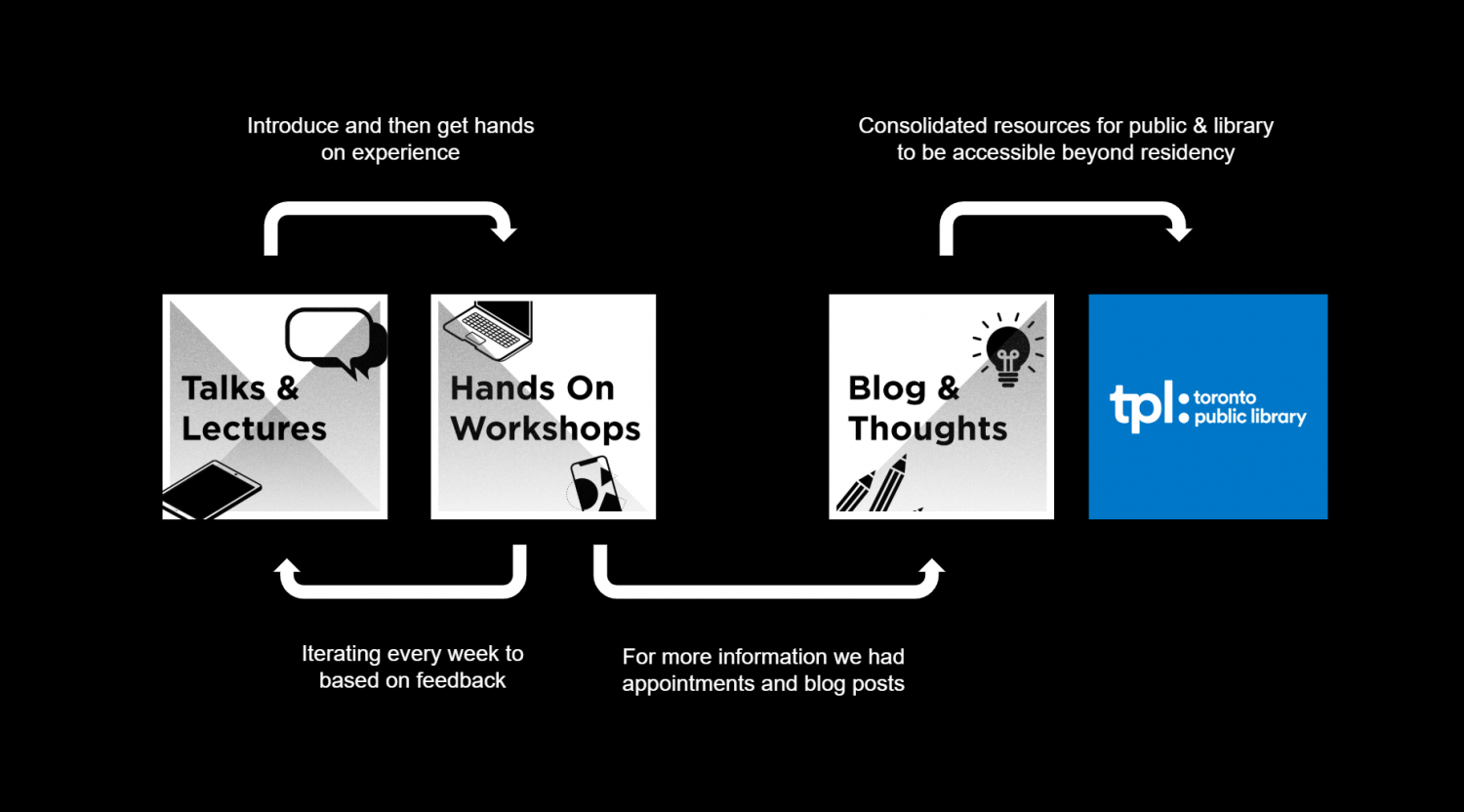
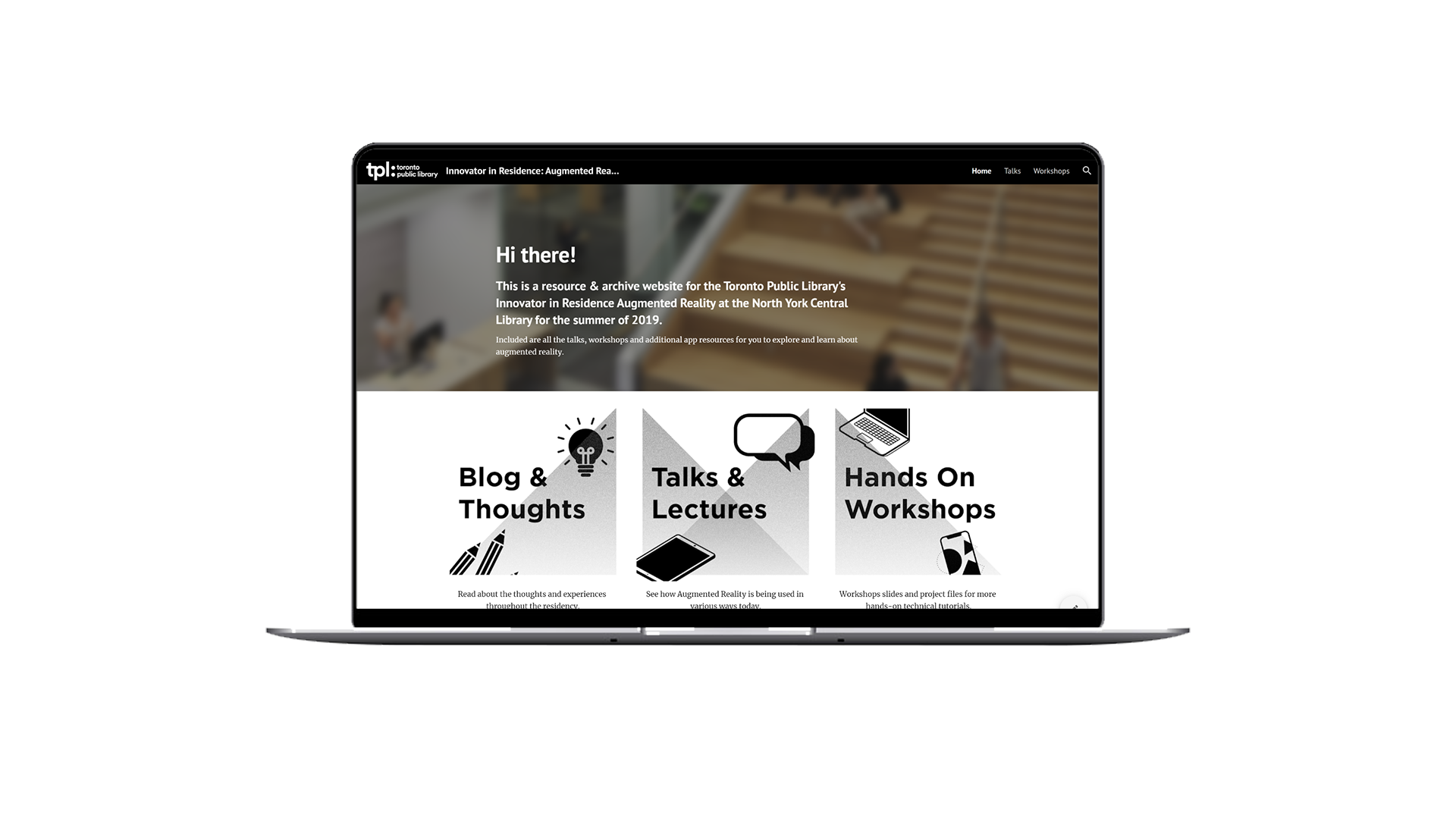
Learning through Teaching
In curating and developing the programming schedule, sessions were only ever planned 1-2 weeks ahead which allowed for flexibility, feedback and suggestions from patrons. This was essential as their feedback and asks would later inform content for future workshops!
From session survey feedback we discovered that with only a limited amount of time to introduce any given topic- many patrons would ask for slides or additional resources so they can continue to learn on their own.
In turn I adjusted the sessions to be more focused in introducing a topic and giving out resources and next steps to empower patrons to continue self-directed learning with options for one-on-ones or prompts for future sessions to continue engagement with the programs.
It was through this process with overwhelming engagement from patrons that I decided to consolidate and archive all the slides with sources and additional references into a micro-site that could be made open and accessible to the public beyond my residency.
40+
Programs
400+
Participants
10
Weeks
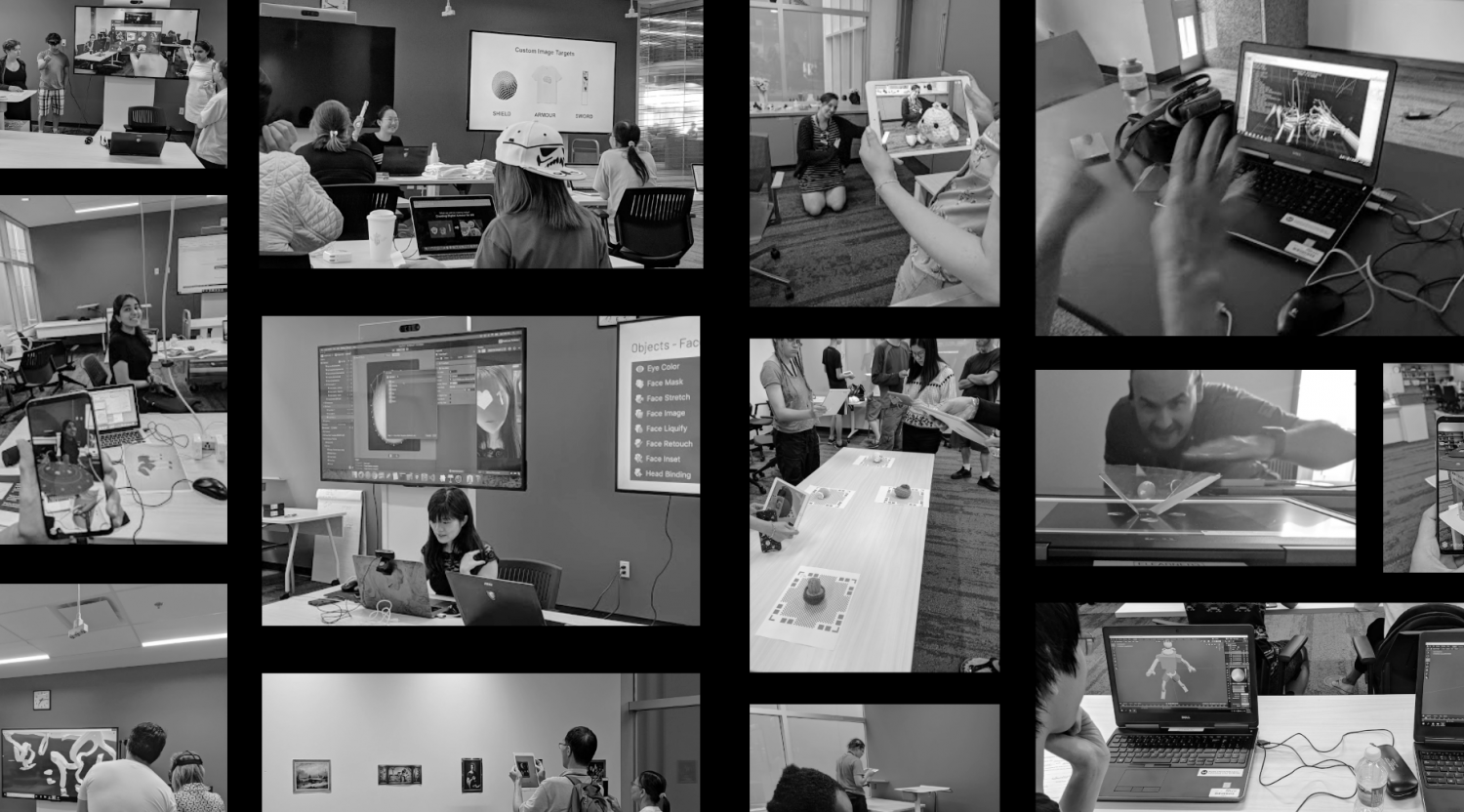
Translating Complexity
Never underestimate your audience, and their questions- they are always an opportunity to spark more discussion and learning. Also being able to research, digest the information, and translate complexity quickly and effectively to be able to teach it in a way that is accessible to the average person and not always the easiest thing to do- but very rewarding when it does click!
Empowerment Beyond Residency
For newcomers into the field! Although it may be overwhelming, effective curation cuts through the noise and is a step forward to empower those who are eager to explore and learn.
Diversity of Perspectives
Technology is pervasive and it is important to not only have the perspectives of experts but also that of the users and the general public. It is only together in dialogue that we can become more aware about the potential of AR technology as well as the tricky ethics surrounding it.